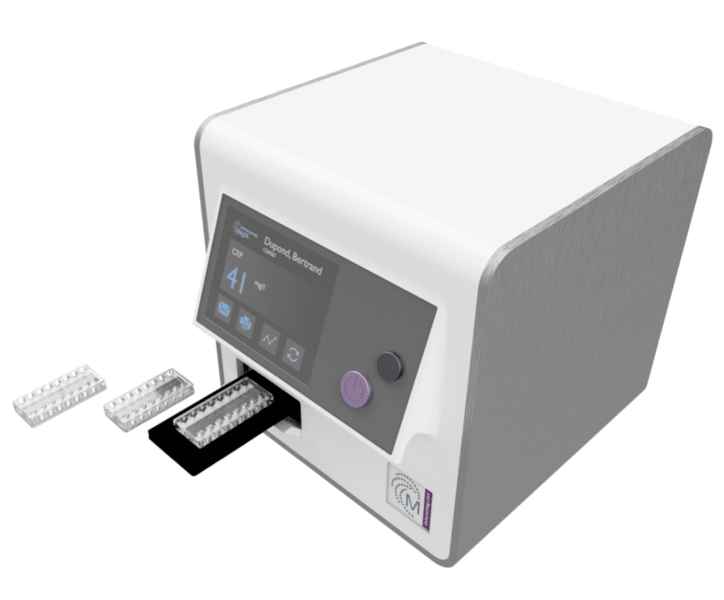Issue
Biological tests are mainly centralized in diagnostic laboratories, which can result in long timescales for analysis, impacting on patient care (e.g. cardiovascular illnesses, infectious diseases, etc.). This method is also costly in terms of technician time and equipment.
Making biological analysis high performance and accessible is a challenge that faces all companies developing immunological (ELISA) tests. The choice of platform, its performance, speed, and availability have a strong impact on the adoption of the analysis.
Currently, the most widely used point-of-care format is the strip test. This is however often limited to a qualitative result, and thus the analytical sensitivity and specificity may be limited for certain applications (e.g. hormonal tests, some infectious disease or emergency tests).
Lab-on-a-chip formats are emerging but remain costly in terms of development, and are not accessible to diagnostic companies wishing to make use of such technologies.

